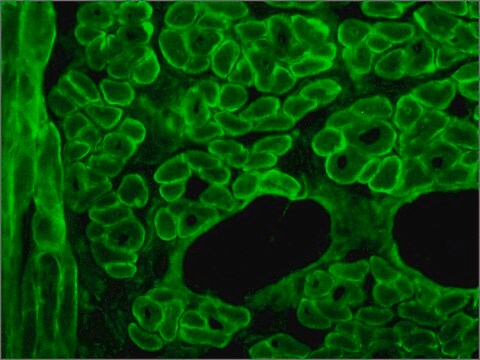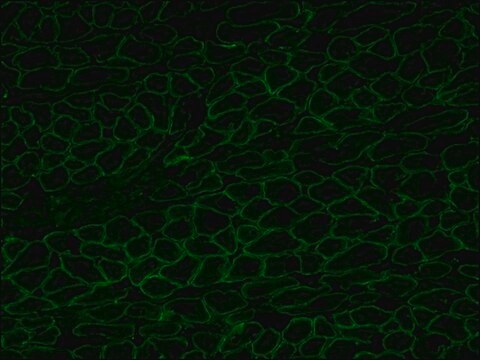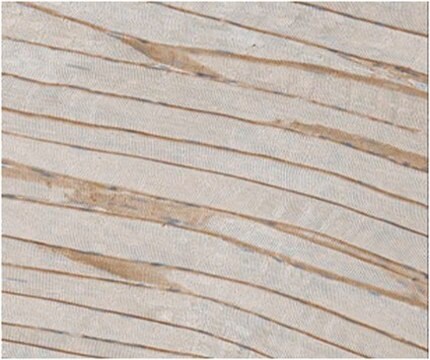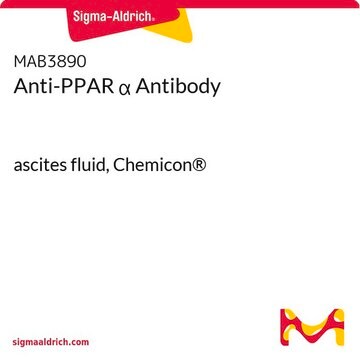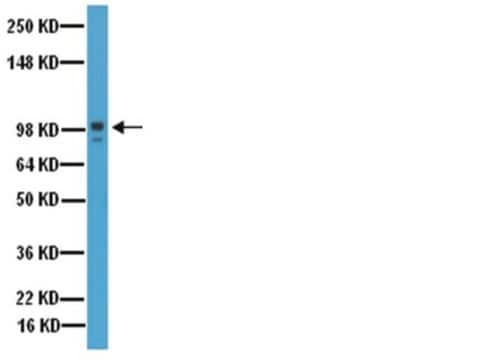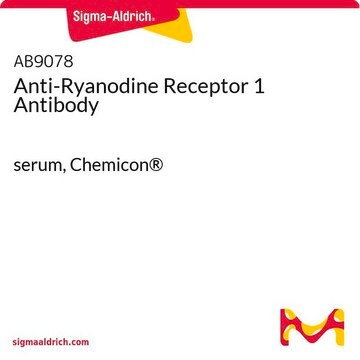SAB4200763
Anti-Dystrophin Antibody

mouse monoclonal, MANDRA1
Synonyme(s) :
Anti-DMD
About This Item
Produits recommandés
product name
Anti-Dystrophin antibody, Mouse monoclonal, clone MANDRA1, purified from hybridoma cell culture
Source biologique
mouse
Niveau de qualité
Forme d'anticorps
purified from hybridoma cell culture
Type de produit anticorps
primary antibodies
Clone
MANDRA1, monoclonal
Forme
buffered aqueous solution
Poids mol.
~427 kDa
Espèces réactives
zebrafish, rat, mouse, human
Validation améliorée
independent
Learn more about Antibody Enhanced Validation
Concentration
~1.0 mg/mL
Technique(s)
immunoblotting: suitable
immunofluorescence: suitable
immunohistochemistry: 10-20 μg/mL using acetone fixed rat tongue frozen sections
Isotype
IgG1
Numéro d'accès UniProt
Conditions d'expédition
dry ice
Température de stockage
−20°C
Modification post-traductionnelle de la cible
unmodified
Informations sur le gène
human ... DMD(1756)
Description générale
Spécificité
Application
- immunohistochemistry
- immunoblotting
- immunofluorescence
- enzyme-linked immunosorbent assay (ELISA)
Actions biochimiques/physiologiques
Forme physique
Stockage et stabilité
Clause de non-responsabilité
Vous ne trouvez pas le bon produit ?
Essayez notre Outil de sélection de produits.
En option
Code de la classe de stockage
10 - Combustible liquids
Point d'éclair (°F)
Not applicable
Point d'éclair (°C)
Not applicable
Certificats d'analyse (COA)
Recherchez un Certificats d'analyse (COA) en saisissant le numéro de lot du produit. Les numéros de lot figurent sur l'étiquette du produit après les mots "Lot" ou "Batch".
Déjà en possession de ce produit ?
Retrouvez la documentation relative aux produits que vous avez récemment achetés dans la Bibliothèque de documents.
Notre équipe de scientifiques dispose d'une expérience dans tous les secteurs de la recherche, notamment en sciences de la vie, science des matériaux, synthèse chimique, chromatographie, analyse et dans de nombreux autres domaines..
Contacter notre Service technique